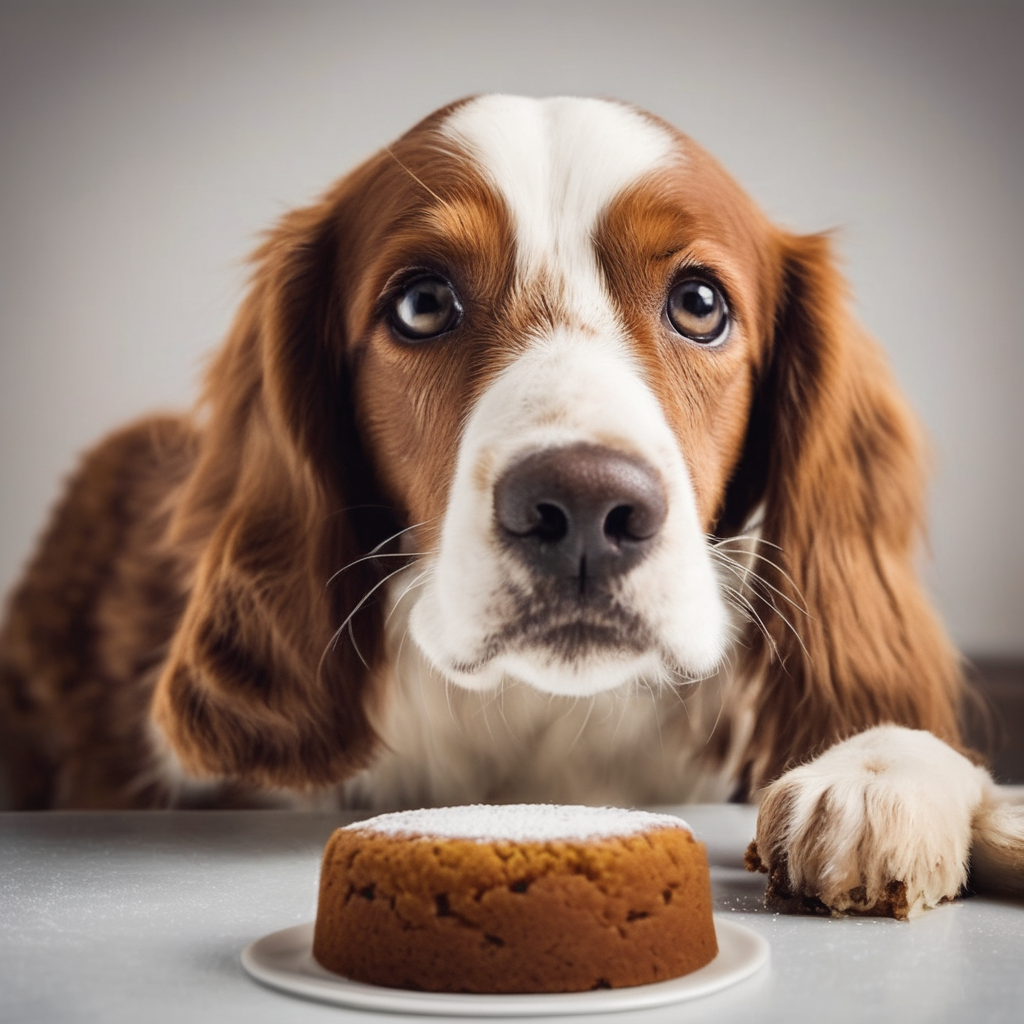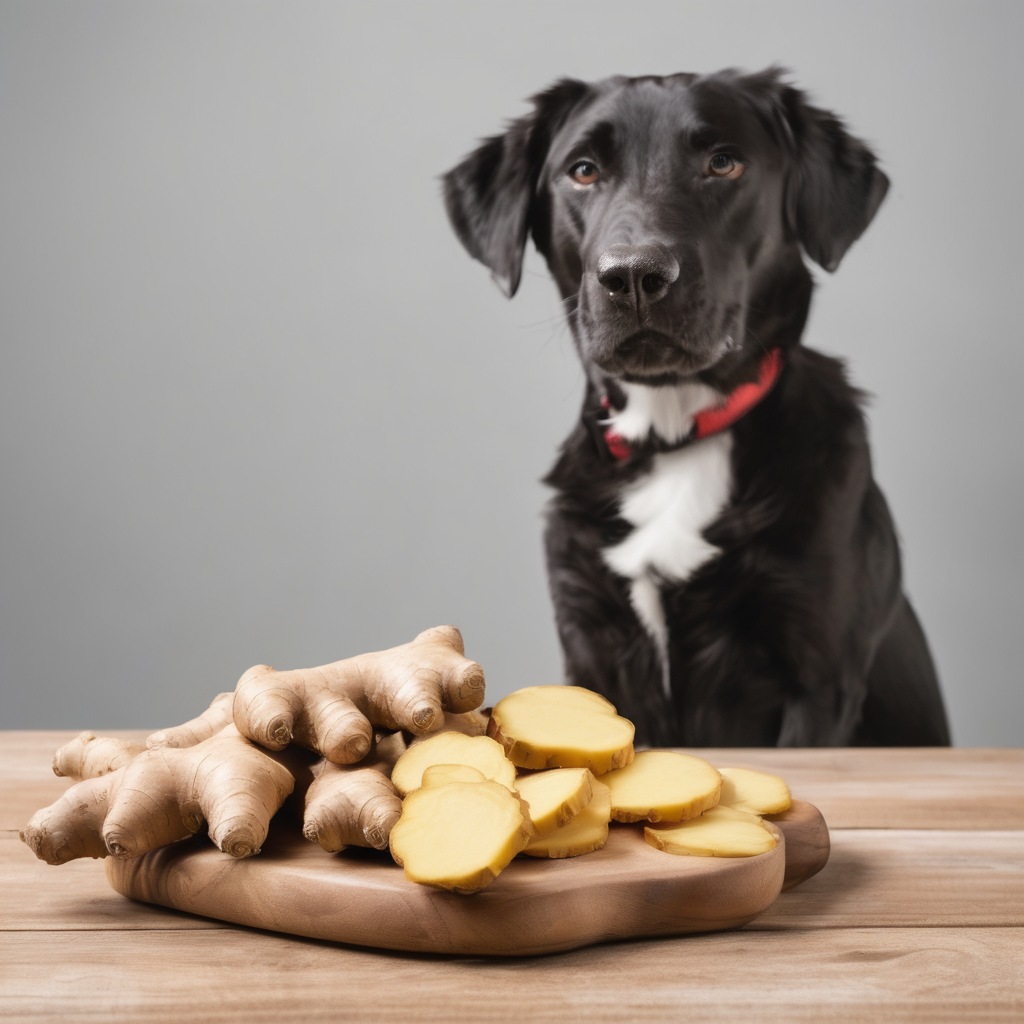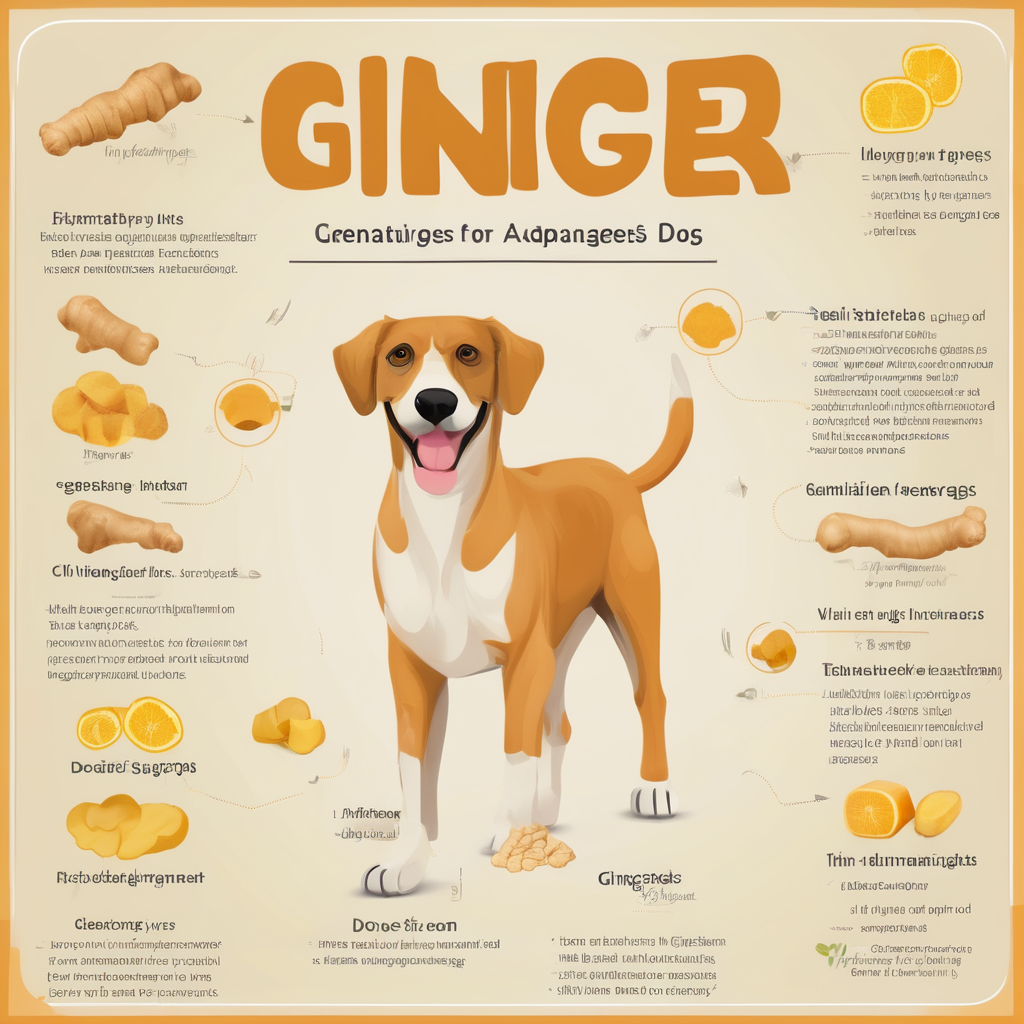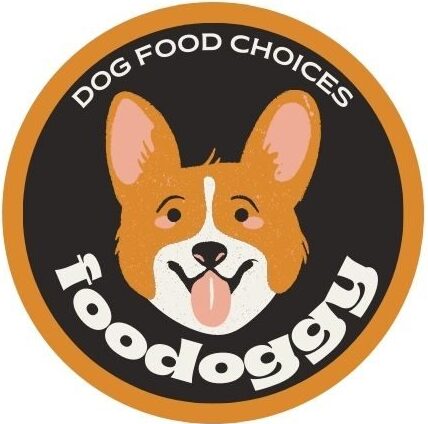Do you ever find yourself indulging in a delicious piece of ginger cake, only to have your faithful canine friend looking up at you with those pleading, irresistible eyes? You might be tempted to share your sweet treat with your lovely friend. But, it is important to know, Can Dogs Eat Ginger Cake?
No, dogs should not eat ginger cake. Ginger cake often contains ingredients like sugar, spices, and sometimes even chocolate, all of which can be harmful to dogs.
Before you succumb to those puppy dog eyes, it’s crucial to remember that what is delicious and beneficial to us might not always be the same for our four-legged buddies. Knowing what is safe and what is toxic to our dogs is not just responsible pet ownership, it is an act of love. We will unravel the mystery surrounding dogs and ginger cake, providing you with the knowledge needed to make an informed decision. So, let’s dive into the question, can dogs eat ginger cake?

Can Dogs Eat Ginger?
Believe it or not, ginger is beneficial for dogs in moderate amounts. A small slice or a pinch of powdered ginger can do wonders for your dog’s health. It has anti-inflammatory properties that can soothe your pet’s joint pain. If your furry friend is suffering from an upset stomach or nausea, ginger can be a lifesaver due to its natural anti-nausea capabilities.
But remember, moderation is key. While a smidge of ginger can be beneficial, an excess could lead to gastric discomfort. So, before you get carried away and start adding ginger to your dog’s meals, take a pause. Consult with your trusted vet to determine the correct amount suitable for your dog’s size and dietary needs.
Imagine the joy of knowing that you’re not just feeding your dog, but you’re actively contributing to their well-being. But, like all good things, this comes with responsibility. So, the next time you’re whipping up a meal for your furry friend, remember, that a dash of ginger could be a health-boosting ingredient, but only if used judiciously.

The Benefits of Ginger for Dogs
Ginger, the piquant rhizome we so adore in our Asian cuisine, is more than just a flavorful kick for your pup’s palette. It’s a treasure chest of health benefits. One of the most persuasive arguments in favor of ginger is its anti-inflammatory properties. These properties can help alleviate arthritis in dogs, a common ailment in older canines that can affect their mobility and overall quality of life.
Moreover, ginger also boasts antioxidant attributes. Antioxidants play a crucial role in neutralizing harmful free radicals in the body, thereby promoting overall canine health. Not only this, ginger can also be a lifesaver for dogs prone to car sickness. Its anti-nausea effects have been widely recognized, making it a natural remedy for motion sickness.
In essence, incorporating a hint of ginger into your dog’s diet could be likened to gifting them a tiny, health-boosting package, beautifully wrapped in flavor. Not only will your furry friend be relishing a new taste, but they’ll also be embracing a stronger, healthier life. So why not add a dash of ginger to your pet’s meal today?

Is Ginger Suitable for Dogs?
Our responsibility towards these loyal companions extends beyond just their immediate happiness. It involves safeguarding their health, their well-being, and their longevity. So, when introducing something new to their diet, we must not just consider the immediate effects, but also the long-term implications.
Ginger, as a natural herb, offers a multitude of health benefits. It can aid digestion, reduce inflammation, and boost immunity. However, moderation is crucial. Overconsumption can lead to health complications such as heartburn, bloating, and changes in blood sugar levels.
Veterinarians recommend introducing ginger slowly into your dog’s diet. Start with a small amount and observe their reactions. If they exhibit any discomfort or adverse reactions, consult your vet immediately.
Let’s remember our ultimate goal: to ensure the health and happiness of our furry friends. So, while ginger can be a powerful addition to your pet’s diet, it should never replace a balanced, nutritious meal or professional veterinary advice.
In conclusion, ginger is not only suitable but also beneficial for dogs when used responsibly and in moderation. Let’s love our pets by loving what we feed them.
Read More Here: Can Dogs Eat Ube Cake?
Can Dogs Eat Raw Ginger?
The answer is a resounding yes! In fact, not only can dogs consume raw ginger, it is beneficial for them. Raw ginger contains bioactive compounds that can aid in digestion, soothe nausea, and reduce inflammation in your beloved pooch. But, as with everything, moderation is key.
However, don’t be too quick to toss a large chunk of raw ginger to your eager pet. Ginger, like many things, should be introduced gradually. Start with a small amount grated into their regular food, and watch for any adverse reactions.
The bold, fiery taste of raw ginger can be quite strong, and may not appeal to all dogs. If your pet turns up their snout, don’t despair. There are numerous ways to incorporate ginger into their diet, from ginger-infused treats to ginger supplements.
So, next time you’re slicing into that fragrant, golden root, consider sharing a small piece with your canine companion.
Side Effects of Ginger for Dogs
You love your dog, and that’s why you must know that too much ginger could lead to gastrointestinal discomfort in dogs. Picture your beloved pet suffering from heartburn, bloating, gas, or even diarrhea. It’s a heartbreaking image, isn’t it?
Think for a moment about the intense flavor of ginger. It’s powerful, isn’t it? Now, imagine how strong it could be for your dog’s more sensitive taste buds. While some dogs may enjoy the taste, others might find it unpleasant, resulting in a loss of appetite.
Moreover, ginger has blood-thinning properties. If your pet is scheduled for surgery or is on any anticoagulant medication, ginger could potentially increase the risk of excessive bleeding. It’s a risk that’s not worth taking.
Let’s not forget about potential allergies, which could lead to skin irritation, difficulty breathing, and other serious health issues.
Your dog’s health is in your hands, so it’s important to exercise caution and consult a vet before introducing any new food into your pet’s diet.
Can Dogs Eat Ginger Cake?
No. As a concerned pet parent, it is essential to understand the potential harm that ginger cake can pose for our four-legged friends. Sure, ginger in moderation could be healthy for your dog, but a ginger cake is a different story altogether. It contains sugar and sometimes, chocolate, both of which are harmful to dogs.
Sugar can lead to obesity, dental issues, and even diabetes in dogs. Chocolate, on the other hand, is a well-known toxin for canines and can cause serious health problems. So, while that slice of cake might seem like a harmless treat, it could be a dangerous indulgence for your furry friend.
Stay strong, resist those puppy eyes, and keep that tasty ginger cake to yourself. Remember, your pet’s health is worth more than a moment of indulgence.

Can Dogs Eat Pickled Ginger?
First, it’s essential to understand that pickled ginger, while it contains the beneficial root, also includes vinegar, salt, and sometimes sugar. Excessive salt and sugar are harmful to dogs and can lead to dehydration, diabetes, and other health issues. Moreover, vinegar, particularly in large amounts, can cause digestive issues in dogs.
Secondly, like us humans, dogs too, have their unique food preferences and aversions. Some dogs may not find the tangy taste of pickled ginger appealing, leading to possible food rejection or even gagging.
Now, I don’t want to deprive your dog of the potential benefits of ginger! But it’s crucial to serve it in a safer, more palatable form such as fresh or powdered ginger.
Admittedly, your dog won’t be joining you for sushi nights soon, but keeping them healthy is a far greater joy.
Read More Here: Can Dog Eat Chocolate Cake?
Can Dogs Eat Ginger Biscuits?
Ginger biscuits, are a delight for our taste buds, but what about our dogs? You might find yourself contemplating, “Can I share this sweet treat with my furry friend?” Well, here’s the answer you’ve been waiting for: Yes, dogs can eat ginger biscuits—not just in theory, but in practice too!
This is not simply a statement, but a well-researched fact. Ginger, in its natural form, promotes digestion and can help soothe upset stomachs in dogs. Now, let’s be honest, wouldn’t you love to give your dog a treat that not only tantalizes their taste buds but also promotes health?
However, it’s essential to remember that moderation is key. Too many biscuits can lead to obesity, and remember, not all ginger biscuits are created equal. Some might contain harmful ingredients like artificial sweeteners, which are toxic to dogs. Hence, always opt for organic or dog-friendly ginger biscuits.
Can Dogs Eat Gingerbread?
While it’s true that ginger, an ingredient found in both ginger biscuits and gingerbread, can be beneficial for dogs, many gingerbread recipes include ingredients that are potentially harmful to dogs, such as nutmeg. Nutmeg contains myristicin, a compound that can cause serious health problems in dogs including hallucinations, disorientation, increased heart rate, high blood pressure, and seizures.
Furthermore, gingerbread is often high in sugar, which can lead to weight gain and dental problems in dogs. It’s also worth considering that gingerbread often contains other spices that might be toxic to dogs, such as cloves.
Now, one might argue that a small amount of gingerbread won’t hurt. However, it’s not just about the immediate effects. Feeding your dog gingerbread could set a harmful precedent, encouraging them to seek out and consume other potentially harmful foods.
Therefore, while the scent of gingerbread might be a delightful part of your holiday celebrations, it’s in your dog’s best interest to keep them away from this treat. Instead, consider dog-friendly alternatives.
To sum it up, gingerbread is a no-go for dogs.
Conclusion
While ginger can offer certain health benefits to dogs, it must be given in moderation and with caution. Overconsumption can lead to adverse side effects. Ginger cake, pickled ginger, ginger biscuits, and gingerbread may contain other ingredients that can potentially harm your furry friend.
It’s crucial to consult with your vet before introducing new food items into your dog’s diet. It’s always better to be safe than sorry when dealing with your beloved pet’s health. Always remember, their well-being should be our top priority.
